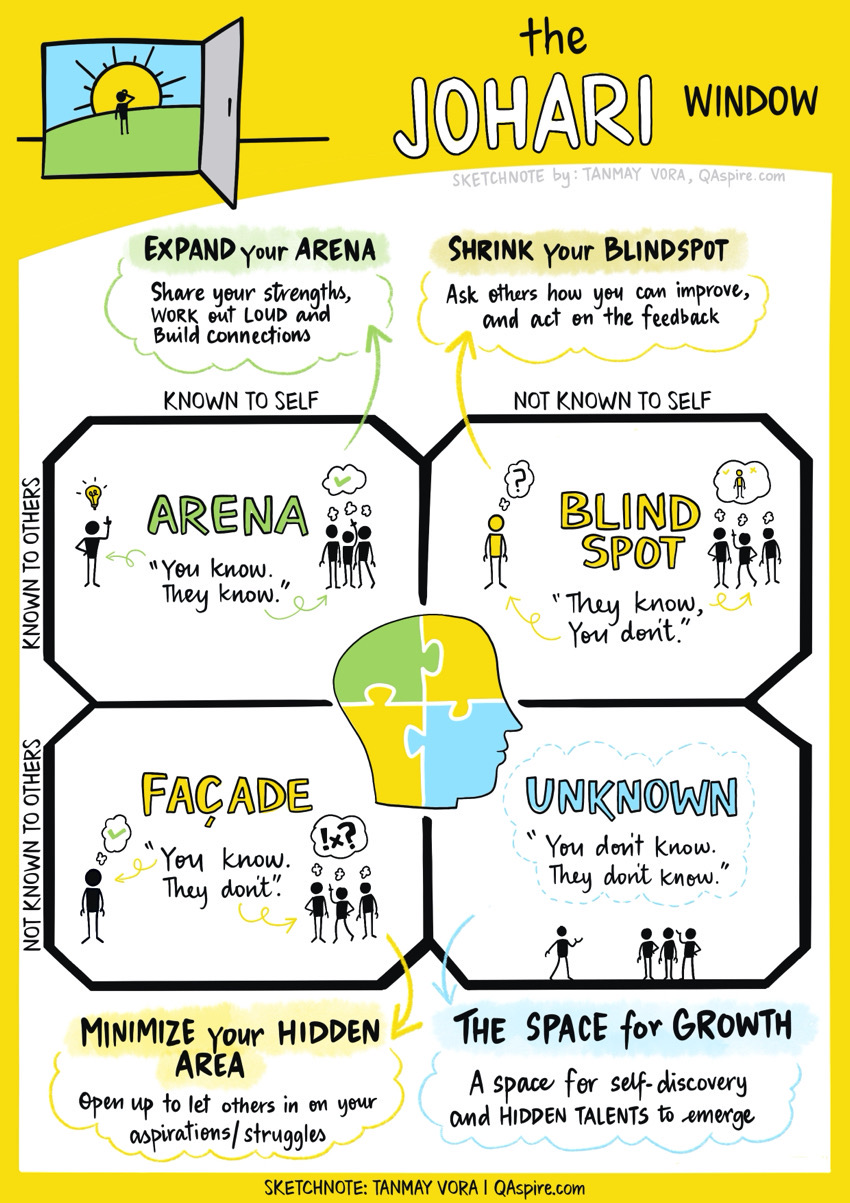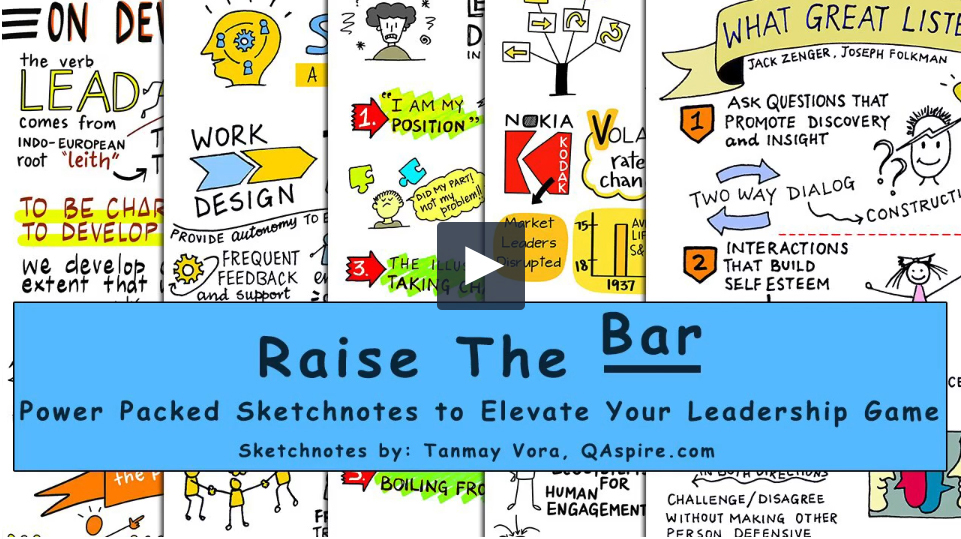
We all have blind spots – things we don’t know about ourselves, but others see them clearly. Self-awareness isn’t just nice-to-have for modern day leaders and professionals. It is the foundation of being able to live up to your full potential. How would we amplify our strengths or manage our weaknesses if we aren’ty even aware of them?
And yet, when you can tap into the hidden feedback others have, you are on the path to real growth.
The Johari Window
That’s where Johari Window comes in as a handy tool that helps us understand ourselves better by looking through four panes:
- Arena: Things you know about yourself and others also know about it.
- Blindspots: Things others know about you that you are not aware of.
- Facade: Things about yourself (beliefs, thoughts, aspirations, fears etc) that you know, but others don’t.
- Unknown: Things abut you that neither you are aware about nor others are.
But here’s the kicker: most of us tend to focus too much on what we think we know about outselves. Tasha Eurich’s book Insight tells us that building external self-awareness (outsight) is as crucial as building internal self-awareness (insight). Understanding how others see us matters as much as how we see our own selves.
“There are three things extremely hard: steel, a diamond, and to know one’s self.” – Benjamin Franklin
Opening Your Window to Self-Awareness
Here’s how you can use this awareness:
- Expand your Arena: Work out loud. Share your process. Build network of relationships.
- Shrink your Blindspots: Seek continual feedback from peers, bosses and customers. Avail coaching. Act on the feedback.
- Minimize your Facade: Be integral in your thoughts, words and deeds. Open up about your aspirations, beliefs and fears. Vulnerability builds connections and establishes authenticity.
- Embrace the Unknown: as an emergent space to explore the self and discover your hidden talents.
In my career, Johari window has served me as an excellent tool to bridge the gaps. It helped me reframe some of my perceived weaknesses into strengths through active self-introspection and feedback. My biggest learning is: When we embrace the unknown and shrink our blindspots, we open the window to create more room for connection, empathy and leadership.
Because leadership isn’t about being perfect. It’s about using the compass of awareness to enable growth – for the self, for others around you, and for the context you work in.
Johari Window: A Sketchnote
Here is a sketchnote depicting Johari Window:

Updated: Visual Leadership Pack HD Sketchnotes
If you liked the sketchnote summary above, check out the Visual Leadership Pack of HD Sketchnotes – a compilation of high-resolution sketchnotes with 90+ powerful (and timeless) ideas to elevate your leadership and learning game.

Discover more from reviewer4you.com
Subscribe to get the latest posts to your email.





